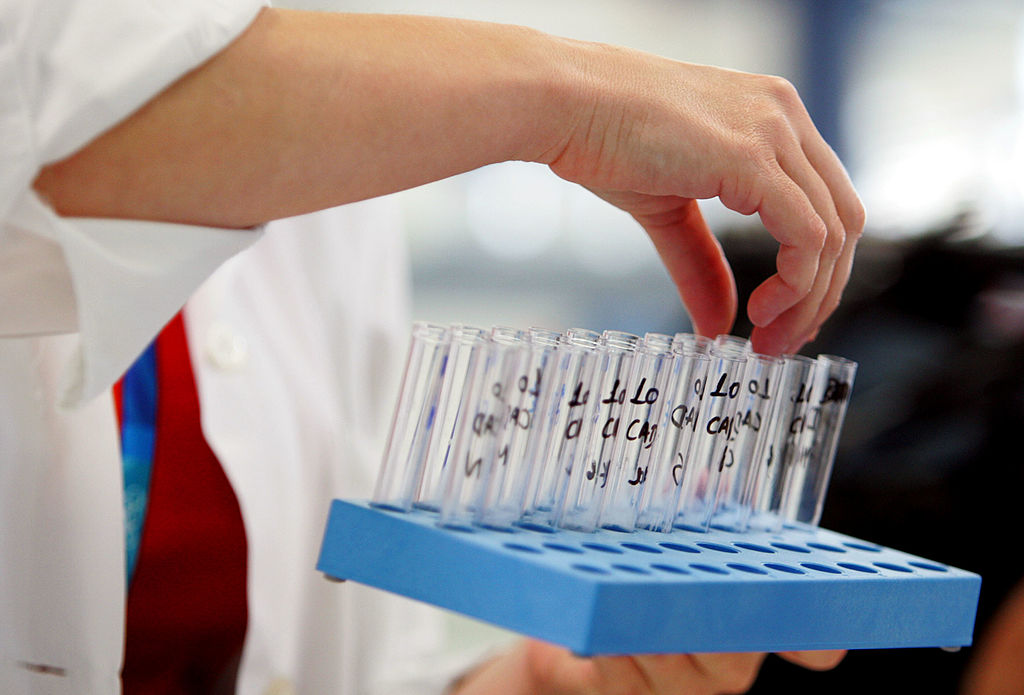WADA seeking four-year ban for Russia
Decision could bar Russia from Tokyo Olympic Games

The World Anti-Doping Agency's independent Compliance Review Committee (CRC) has recommended a four-year ban on Russia after the country failed to comply with the requirements WADA had set for Russia to hand over all of the laboratory data from the Moscow laboratory.
The WADA Executive Committee is due to discuss the recommendation on December 9 at its meeting in Paris.
Independent forensic experts found inconsistencies in the data that was retrieved from the Moscow Laboratory in January 2019. A complete transfer of the data was one of the pre-conditions for Russia to remain reinstated after its 2015 state-sponsored doping scandal.
WADA required authentic data to ensure any Russian athletes who had tested positive could be punished and to ensure that innocent Russian athletes could be cleared of suspicion, the agency said in a press release.
Cookson has confidence in Russian cycling despite athletics doping scandal
Russian track cyclist Gnidenko only cycling positive from 2012 Olympics re-test
UCI confirms three Russian cyclists withdrawn from Olympic Games
Russian anti-doping lab tampering 'doesn't have that big an impact' on cycling, says Cookson
Cyclists among the 1,000 Russian athletes implicated in McLaren report
WADA said the Moscow data "are neither complete nor fully authentic", and when compared with a 2015 copy provided by a whistleblower, the 2019 copy of the laboratory data "hundreds of presumptive adverse analytical findings that appear in the 2015 copy of the LIMS database have been removed from the 2019 copy, and the related underlying raw data and PDF files have been deleted or altered."
Some of the alterations were made before WADA agreed to reinstate Russia, but "further significant deletions and/or alterations were made in December 2018 and January 2019 (i.e., after the WADA ExCo imposed the data requirement)", the agency said.
WADA added that the data included "planted fabricated evidence" that made it seem as if whistleblower Dr. Grigory Rodchenkov and two co-conspirators falsified entries "in a scheme to extort money from athletes" and deleted evidence proving that another staff member was involved in covering up doping by Russian athletes in 2014 and 2015.
Get The Leadout Newsletter
The latest race content, interviews, features, reviews and expert buying guides, direct to your inbox!
The doping scandal already saw parts of the Russian team barred from the 2016 Summer Olympic Games in Rio de Janeiro, Brazil, and could jeopardize the team's participation in the Tokyo Olympic Games next year.
According to the New York Times, the WADA Executive Committee is expected to support the ban which could then be contested at the Court of Arbitration for Sport. It would allow individual international federations to clear some athletes to participate as independent athletes.
The country could face further sanctions including being barred from all international competitions for all WADA signatories including the UCI. It is unclear from the report if athletes would be allowed to compete under as independents in non-Olympic events, such as the UCI World Championships or World Cups where riders compete with national teams.
The recommendation also calls for Russia to be banned from hosting or bidding on hosting sporting events for four years, and prevents Russian Government officials/representatives from sitting as "members of the boards or committees or any other bodies of any Code Signatory (or its members) or association of Signatories".
Russian athletes can only compete in major events if they can prove they are not implicated in the doping scheme either by being mentioned in the original independent report by Richard McLaren, they have no positive doping tests in the laboratory data or have not had their sample data manipulated.
In 2016, track cyclists Dmitry Sokolov, Kirill Sveshnikov and Dmitry Strakhov were barred from competing in Rio and attempted to sue McLaren and WADA for being "unfairly tarnished as cheaters and dopers".
Cyclingnews is the world's leader in English-language coverage of professional cycling. Started in 1995 by University of Newcastle professor Bill Mitchell, the site was one of the first to provide breaking news and results over the internet in English. The site was purchased by Knapp Communications in 1999, and owner Gerard Knapp built it into the definitive voice of pro cycling. Since then, major publishing house Future PLC has owned the site and expanded it to include top features, news, results, photos and tech reporting. The site continues to be the most comprehensive and authoritative English voice in professional cycling.